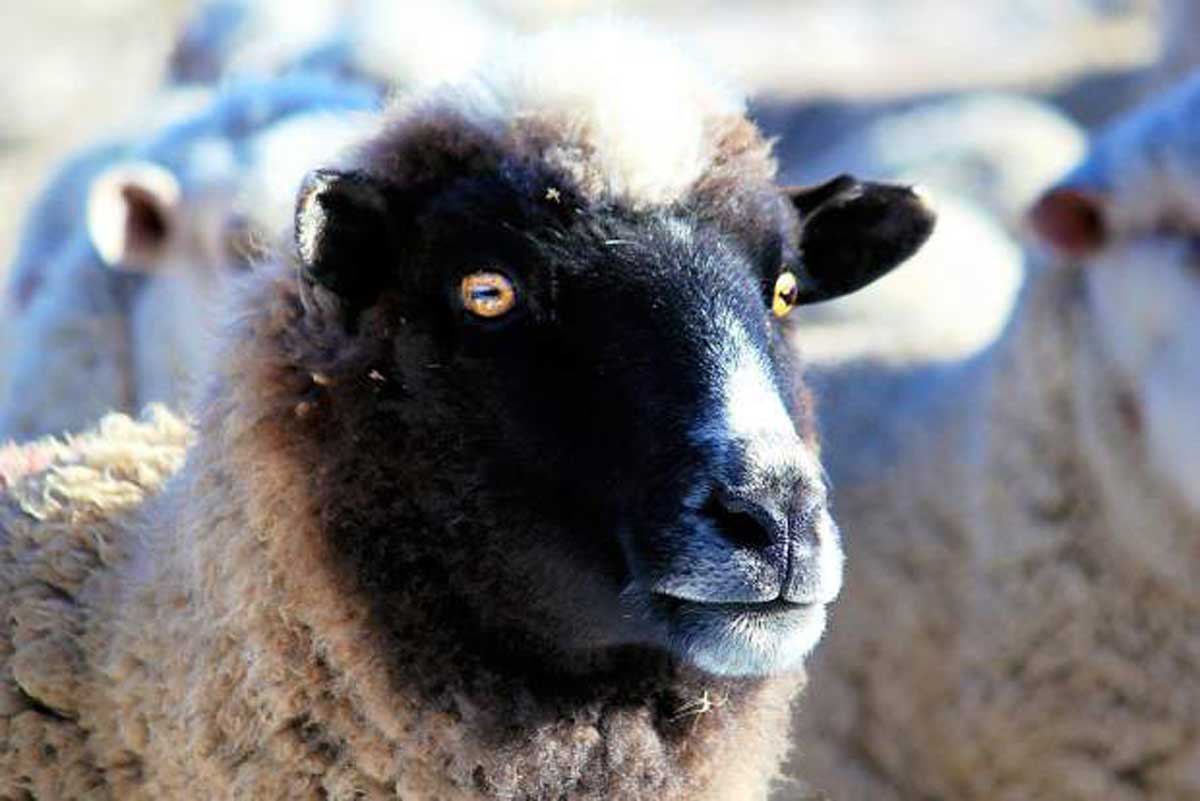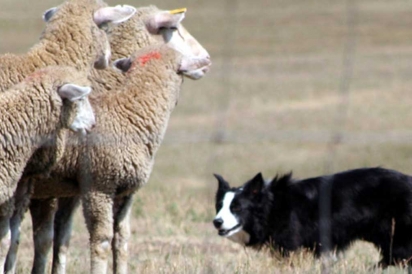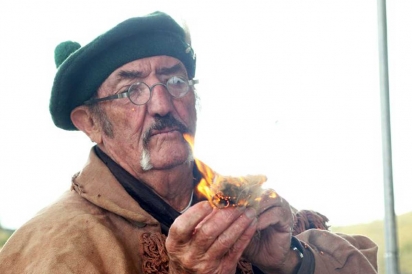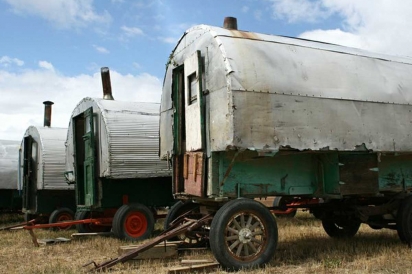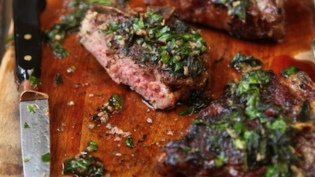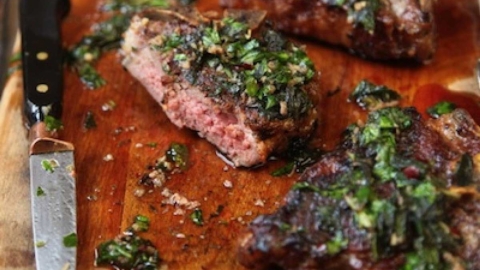Feeling Sheepish: Craig, Colorado, Celebrates Its Ranching Heritage
I grew up on a small California ranch, the daughter of a large animal veterinarian. One early fall day when I was five, my dad decided I was old enough to accompany him on a lengthy trail ride. Somehow he got lost, and as the sun set, we found refuge with an old Basque sheepherder whose camp we’d come across. It was dark when the police cruiser showed up; I was driven home, leaving my dad to deal with our horses.
I vividly recall this adventure for three reasons. One, it showed that my father was not, in fact, infallible. Two, I learned who the Basques were and why we had such a large population in California (they emigrated en masse to the western states in the late 19th century, to pursue their traditional livelihoods as sheepherders). Three: Over 40 years later, I still can’t believe there were sheep being run in my hometown of Thousand Oaks in the mid-70s, where the mall now stands. Today, T.O. is a populous upper-class L.A. suburb home to many celebrities- something I find quite depressing.
Recently, I recalled my youthful encounter with the sheepherder while visiting the neighboring ranching towns of Hayden and Craig. It was then that I discovered Colorado has a far more complex—and infamous—history of sheep ranching than I’d previously realized.
While cattle ranching has been a part of Colorado agriculture since the 1820’s, sheep weren’t brought into the state until the late 1800’s (they came to North America via Spain). The early Colorado shepherds weren’t Basque, but rather of Navajo and Mexican descent. There was considerable animosity between the European-descended cattle ranchers and the sheepherders due to competition for open-range resources. Known as the Sheep Wars, this period led to often-violent conflicts that resulted in the fatalities of humans and animals throughout the west, with notable losses occurring in places like Crested Butte and Garfield County’s Parachute Creek.
As the century drew to a close, the Panic of 1893 resulted in many cattle ranchers going bust, and some turned to raising sheep, instead. Sheep are less expensive than cattle to grow and maintain, and are low-impact upon the habitat because of their small size. In modern ranching, sheep are used to improve range soil and vegetation by “reducing brush competition” for conifers, “improving forage densities for cattle by reducing noxious plants, and improving habitat conditions for wildlife,” according to an FDA report called “Rocky Mountain Woolies: Raising Sheep in the New West.” Traditional herd management involving frequent relocation also helps reduce environmental impact.
Despite the ecological benefits, sheep are in reality more labor-intensive than cattle, because they’re vulnerable to disease and predation, and tending sheep is nomadic, isolated work. For this reason, domestic sheepherders have historically camped or slept in tiny caravans known as sheep wagons to stay close to their flock, in addition to relying upon guard and stock dogs. Modern sheepherders are often Latin American immigrants known as borregueros, who come to the U.S. specifically to tend sheep in the traditional manner for large ranching operations. Sadly, there’s been a series of lawsuits and disputes regarding inhumane working conditions for some borregueros in the western states (for more information, click here).
For many Colorado ranching families, however, sheep are more than just a commodity. Rather, they’re part of a proud, multi-generational legacy that retains an emphasis on sustainability and humane livestock management. The Villard Ranch is one such example. Patriarch Albert, his wife Melody, and their four children run their historic sheep operation in Craig. Established by Albert’s grandmother in Utah before she relocated to the Yampa Valley in 1928, the Villard’s raise sheep (Suffolk, Rambouillet, and a Columbia/Rambouillet cross) for meat and wool. Albert grew up on the ranch and carries on the tradition of overseeing the herd, as well as the attendant ranch work; Melody and the kids assist with ranch management.
The Villards run about 1,200 head of free-range sheep, moving them from lower-altitude winter pastures to the lush grasses of the high country during the summer months. The Villard’s are also one of the forces behind Craig’s Sheep Wagon Days Festival, now in its 17th year. Every fall, the community celebrates its sheep ranching heritage with a weekend of hands-on workshops (including butter-making, milking, branding, shearing, spinning, weaving, quilting, rope-making, and felting), stock dog demos, and sheep wagon tours. There’s food and craft vendors, a sheep hooking contest, an antique tractor pull and show, and petting zoo. This year’s Sheep Wagon Days is September 17-19, at the Wyman Living History Museum.
If you’re looking for a place to crash during Sheep Wagon Days, the Villard’s offer a seasonal solution that also provides a true Colorado agritourism experience. They rent a historic sheep wagon by the night in spring, summer and fall, and allow guests to choose their site. You can remain close to the ranch to assist with spring lambing, sleep amongst the sagebrush and service berry of the lower pastures, or in the quaking aspen groves at higher elevation. The Villard’s will even provide horses for you to ride. Many guests choose to stay in a wagon during hunting, fishing, or wildlife viewing trips.
For details on renting a sheep wagon or attending the festival in Craig, contact the Villard’s at 970.326.6368 or villardranch@msn.com. Stock dog aficionados may also want to check out the Meeker Classic Sheepdog Championship Trials, September 9-13.


